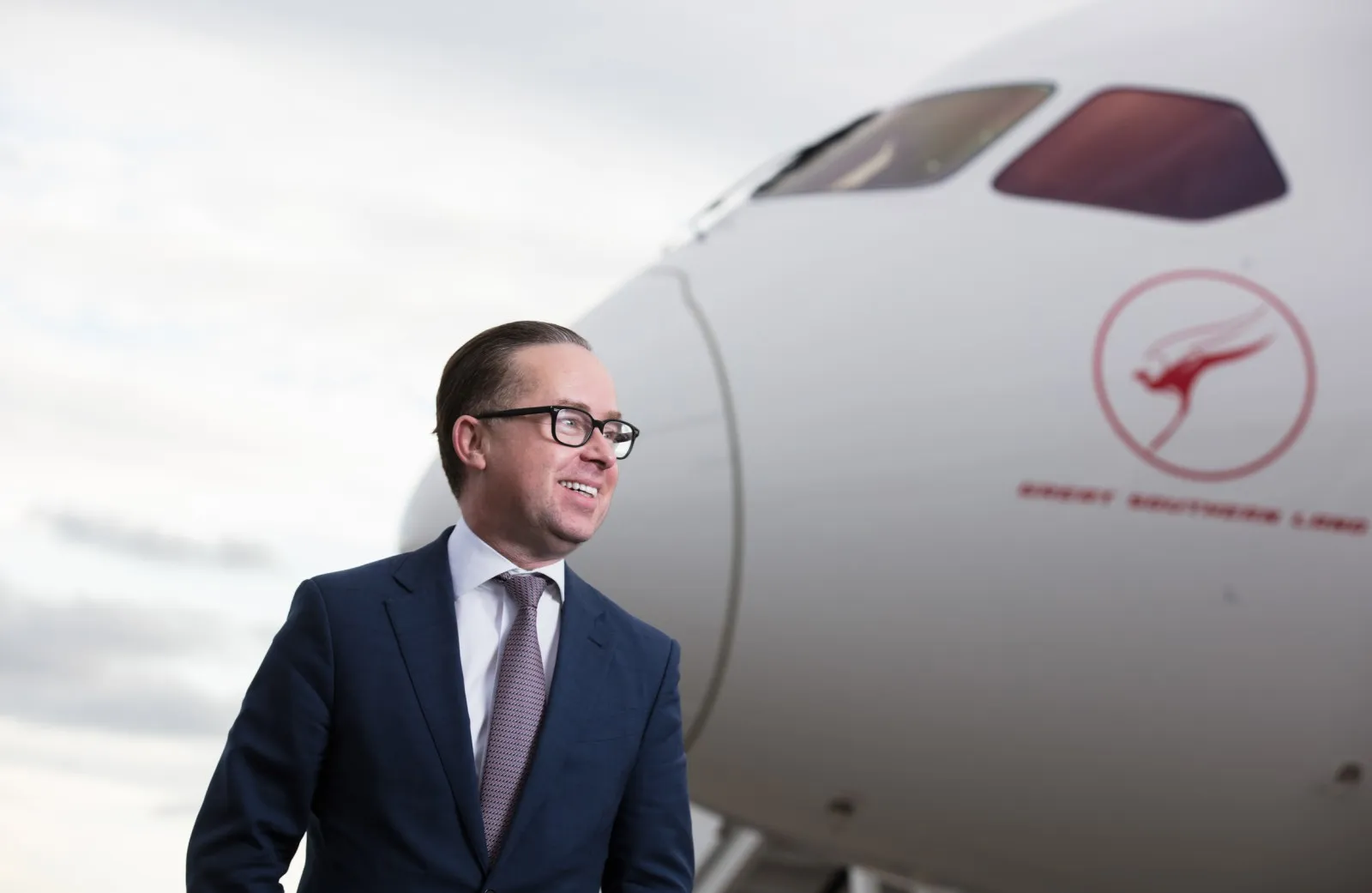
Qantas chief's salary in 83 percent tailspin
Sep 18, 2020

The chief executive of Qantas has faced significant scrutiny following reports of a staggering 83 percent drop in the airline's profits. Despite this dramatic downturn, the CEO's compensation package remains notably high, raising questions about executive pay in the aviation sector, especially during challenging economic times. Critics argue that such a salary is disproportionate given the financial struggles of the company and its impact on employees and customers. This situation highlights the ongoing debate surrounding corporate governance and the ethical considerations of leadership remuneration in industries hit hard by crises.
The recent news surrounding the Qantas chief's salary has sparked significant discussions in the corporate world. With an astonishing 83 percent drop, the revelations have raised eyebrows and prompted an analysis of the broader implications for the airline industry. This article delves into the details of this dramatic salary change, the factors contributing to it, and the potential effects on Qantas and its stakeholders.
Understanding the 83 Percent Salary Decline
The "Qantas chief's salary" has faced a staggering 83 percent decline, a figure that not only reflects the challenges faced by the airline but also raises questions about corporate governance and executive compensation. This reduction is part of a larger trend within the airline industry, where many executives are reevaluating their compensation packages in light of economic realities.
Factors Contributing to the Salary Drop
Several factors have contributed to the "Qantas chief's salary" tailspin. Firstly, the ongoing impacts of the COVID-19 pandemic have severely affected the aviation sector. With travel restrictions and a significant decrease in passenger numbers, airlines have had to adapt swiftly to survive. Here are some primary factors:
- "Decreased Revenue": With a drop in travel demand, Qantas has seen a significant decrease in revenue, prompting cost-cutting measures.
- "Job Cuts and Restructuring": The airline has had to implement job cuts and restructure its operations to remain viable.
- "Regulatory Pressures": Increased scrutiny from regulators and the public has led to a call for more responsible executive compensation practices.
Implications for Qantas and Stakeholders
The implications of this salary decline are multifaceted. For Qantas, the decision to cut the chief's salary reflects an acknowledgment of the current economic climate and the need for accountability. This move may restore some public trust, as stakeholders see leadership taking significant pay cuts during tough times.
Comparative Analysis of Executive Salaries
To put the "Qantas chief's salary" decline into perspective, it is useful to compare it with salaries of executives in similar industries. The following table illustrates how Qantas' executive compensation stacks up against its competitors:
| Airline | CEO Salary (Annual) | Salary Change (%) |
|---|---|---|
| Qantas | $1.5 million | -83% |
| Air New Zealand | $2.2 million | -20% |
| Singapore Airlines | $3 million | -15% |
| Delta Airlines | $5 million | -10% |
This table highlights the dramatic nature of the "Qantas chief's salary" reduction. While many airlines have also adjusted their executive compensation, Qantas' cut is notably more severe, indicating the challenging circumstances the airline faces.
Future Outlook for Qantas
Looking ahead, the future of Qantas will depend on several critical factors, including recovery in air travel demand, successful implementation of restructuring plans, and the ability to maintain stakeholder confidence. The "Qantas chief's salary" reduction is a step in the right direction, but it must be accompanied by tangible improvements in operational performance and financial stability.
Conclusion
The "83 percent decline" in the "Qantas chief's salary" highlights the stark realities faced by the airline industry in the post-pandemic world. As companies navigate these turbulent waters, executive compensation will likely continue to be a point of scrutiny. For Qantas, this reduction in salary may serve as a catalyst for broader changes within the organization, fostering a culture of accountability and transparency.
In summary, the implications of this salary cut extend beyond the individual executive; they reflect a shift in how the airline industry approaches governance, financial responsibility, and public perception. As Qantas strives to recover and rebuild, the focus will be on sustainable growth and the restoration of consumer confidence.
Related Articles

Explore Thailand: The Best Islands to Visit for Paradise, Adventure, and Relaxation

The Ultimate Guide to the Best Islands in Thailand for Your Next Getaway

Do babies need passports? How to get a passport for a newborn

How to get a U.S. passport fast: here’s how to expedite the process

What is Mobile Passport Control: 5 reasons why you should use it

SENTRI vs. Global Entry: A detailed guide

Do you need a passport to go to the Bahamas? Let’s find out

Do you need a passport to go to Mexico? A detailed guide

Do you need a passport to go to Canada? We got the answer

Do You Need a Passport for a Cruise: An Essential Travel Guide

Booster Seat Requirements: All the Rules to Follow in Your Rental Car

What Are the World’s Most Powerful Passports, and How Does Yours Rank?

How to Take a Passport Photo at Home: A Helpful Guide

You've got to have heart! Southwest's new livery

Your opinion: Should water be free on low cost carriers?

Young women bolder than guys as solo travellers
